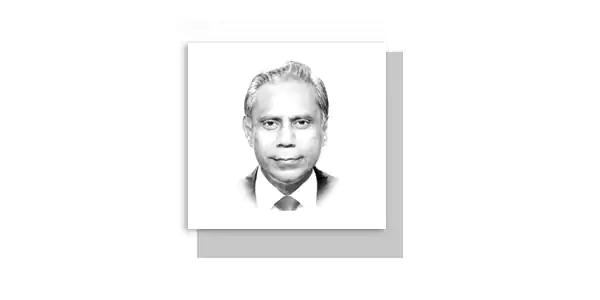French politics is in a state of disarray.
The erstwhile frontrunner, Marine Le Pen’s disqualification from the 2027 French presidential race has sent shockwaves through the entire political milieu in France.
Her conviction for embez-zling €4.1 million in EU funds has led to a five-year ban from public office, a four-year prison sentence (two years suspended), and a €100,000 fine.
This ruling has fragmented the far-right movement, as Le Pen was a strong con-tender against Emmanuel Macron’s centrist agenda.
Her absence opens the door for figures like Jordan Bardella, her protégé, but his lack of experience raises ques-tions about the future of the far-right.
Le Pen’s niece, Marion Maréchal, has also emerged as a potential contender, adding complexity to the party’s future dynamics.
The ruling has also sparked political unrest, with accusations of judicial bias and support for Le Pen from far-right leaders across Europe.
Her disqualification shakes up the far-right’s momentum, leaving a leadership vacuum that could weaken their influence.
Meanwhile, centrist and left-wing parties might seize this opportunity to consolidate power.
The ruling also highlights the judiciary’s role in shaping politics, sparking debates about accountability and fairness.
France’s political future feels more uncertain than ever.
Meanwhile, Marine Le Pen, an anti-immigrant, nationalist politician who has already mounted three failed presi-dential bids, is rallying her supporters in Paris as her party, the National Rally, claims the verdict is politically moti-vated and aims to silence opposition.
The rallies have taken on a populist tone, with chants like “Marine Présidente!
” and signs accusing the justice system of bias.
This phenomenon is not new, as there have been other instances where presidential candidates were barred from participating in elections.
In Guatemala, several opposition candidates, including a front-runner, were banned from the 2023 elections due to allegations of corruption and other legal challenges.
Similarly, in Zimbabwe, Saviour Kasuku-were, a former cabinet minister, was disqualified from running in the 2023 presidential elections after a court ruling.
These cases often spark debates about the fairness and transparency of electoral processes.
Some political pundits compare Marine Le Pen and Imran Khan’s situations.
They share some parallels, but they also differ significantly.
Le Pen was banned from running for political office after being convicted of embezzling European Union funds.
Her case highlights concern about corruption and its impact on democratic institutions.
On the other hand, Imran Khan has faced multiple legal challenges, including contentious convictions for graft and breaking Islamic law.
His political career has been marked by allegations of political victimization and clashes with Pakistan’s military establishment.
Both leaders have claimed that their legal troubles are politically motivated, which is a common narrative among populist figures.
However, the nature of their alleged offenses and the political systems they operate within are quite different.
Le Pen’s case is rooted in financial misconduct within a European context, while Khan’s challenges involve a mix of legal, political, and military dynamics in Pakistan.
Interestingly, the current US President Donald Trump has also described Marine Le Pen’s ban from seeking public office as a “very big deal”.
He expressed concern over the court’s decision to bar her from running for office for five years following her conviction for embezzling European Parliament funds.
Trump also drew parallels between Le Pen’s situation and his own legal challenges in the U.S., suggesting similarities in how political figures are treated.
The question arises as to whether the ban can be overturned?
Apparently, it is unlikely unless her appeals succeed.
The court’s decision is effective immediately, barring her from public office for five years.
Her supporters argue that the ban undermines democracy, but public opinion in France is divided.
Her legal team has stated that they plan to appeal the ruling.
While the appeal process could suspend her prison sentence and fine, it would not affect the immediate enforcement of her ineligibility to run for office.
This provisional execution measure means the ban remains in place unless her appeal is successful before the next presidential election in 2027.
The French Constitutional Council has upheld the legality of such provisional execution bans, stating that they do not infringe on fundamental rights like freedom of expression.
This makes it challenging for Le Pen to argue against the immediate enforcement of her political ban.
Thus, the precedent set by the Constitutional Council’s ruling is a sig-nificant obstacle.
This case has sparked debates on multiple fronts: The French Constitutional Council’s ruling that provisional exe-cution bans are legal has set a precedent.
This decision could impact other politicians facing similar charges.
The rul-ing has divided public opinion.
Some view it as a necessary step to uphold democratic integrity, while others see it as politically motivated.
The case highlights broader issues of accountability and transparency in the use of EU funds, raising questions about governance at the European level.
Marine Le Pen’s recent ban from public office has sparked mixed reactions.
Some view it as a blow to her political career, while others see it as a rallying point for her supporters.
Her political future remains uncertain after her five-year ban from public office, since her ability to return to politics depends on the outcome of that appeal.
If the ban is upheld, she may face challenges in regaining her political momentum, especially with her party, National Rally, navigating leadership transitions.
Since the current French president would have availed the stipulated two terms, the post-Macron scenario in France is rather murky.
—The writer, Retired Group Captain of PAF, is author of several books on China. (sultanm.hali@gmail.com)


















